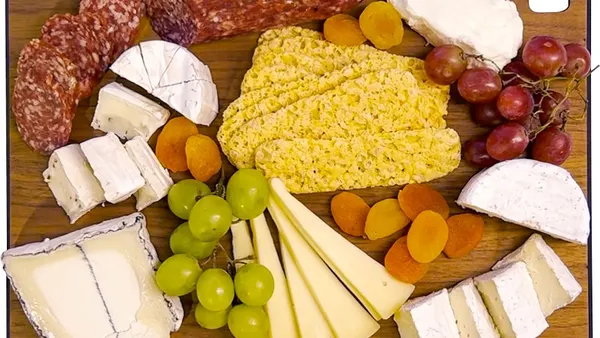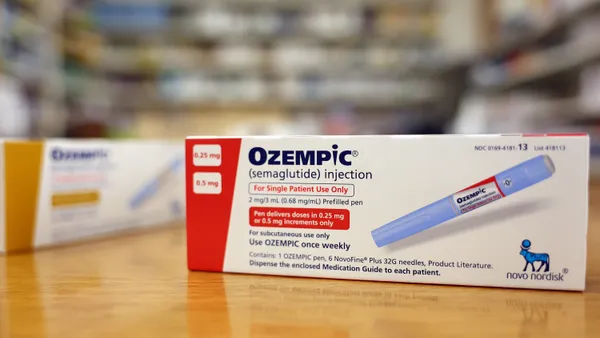Dive Brief:
- Sales growth in natural products is outpacing the total food and beverage retail market, according to a new report from data firm SPINS. The firm's first State of the Natural Industry report found natural products reached $47.2 billion in dollar volume for the year ending May 2019, reflecting a 5% increase over the previous year-long period.
- Natural products comprised 9.1% of total dollar volume for food and beverage categories for conventional retailers and accounted for 27.4% of growth in the past year. C-stores saw 12.6% growth in the category to $2.7 billion, with enhanced waters, kombucha and puffed snacks among the most popular items.
- For the first time, eggs, shelf-stable beverages and frozen and refrigerated meats made the list of top five natural products, while yogurt and kefir saw a 2.4% decline in sales – the biggest drop in the category.
Dive Insight:
Consumers' demand for healthy and convenient options has pushed more and more natural products onto retailer shelves. Products that were once only available in natural or specialty stores are now found in more traditional retail settings from grocery stores to convenience stores.
Earlier this year, Nielsen released data tracking key trends in consumer behavior that showed many Americans are striving to make healthier lifestyle choices, particularly in their diets. This holds true to the findings from SPINS’ report, in which nearly all households purchased natural products at least once in 2018, with 92% purchasing organic products.
With the increased popularity of flexitarian, vegan and vegetarian diets, it’s no surprise that plant-based alternatives to meat and dairy top the list for natural products in their categories. Research from Johns Hopkins Center for a Livable Future recently found that 60% of Americans are reducing their consumption of meat. Additionally, vegan snacks such as chips and pretzels has seen 12.7% growth according to SPINS — the fastest-growing category of vegan foods. Paleo and Keto diet trends have driven interest in grain and dairy-free products.
Private label products stand to benefit from the ongoing growth of natural and organic categories. Private label grew at nearly six times the rate of national brands in 2018, and about 20% of that growth comes from premium and organic products. Publix’s Greenwise products and Kroger’s Simple Truth brand, including its recent partnership with Lucky’s Market and planned roll-out of its plant-based line, are two examples of stores that have successfully incorporated natural products into private label successes.
While banners like Sprouts Farmers Market, Whole Foods, Natural Grocers and many small, specialty stores have built their business on natural products, there is room in the market for supermarkets and non-specialty chains to expand their natural products offerings. Retailers who are willing to invest in innovative natural products will be able to capitalize on their growth.








